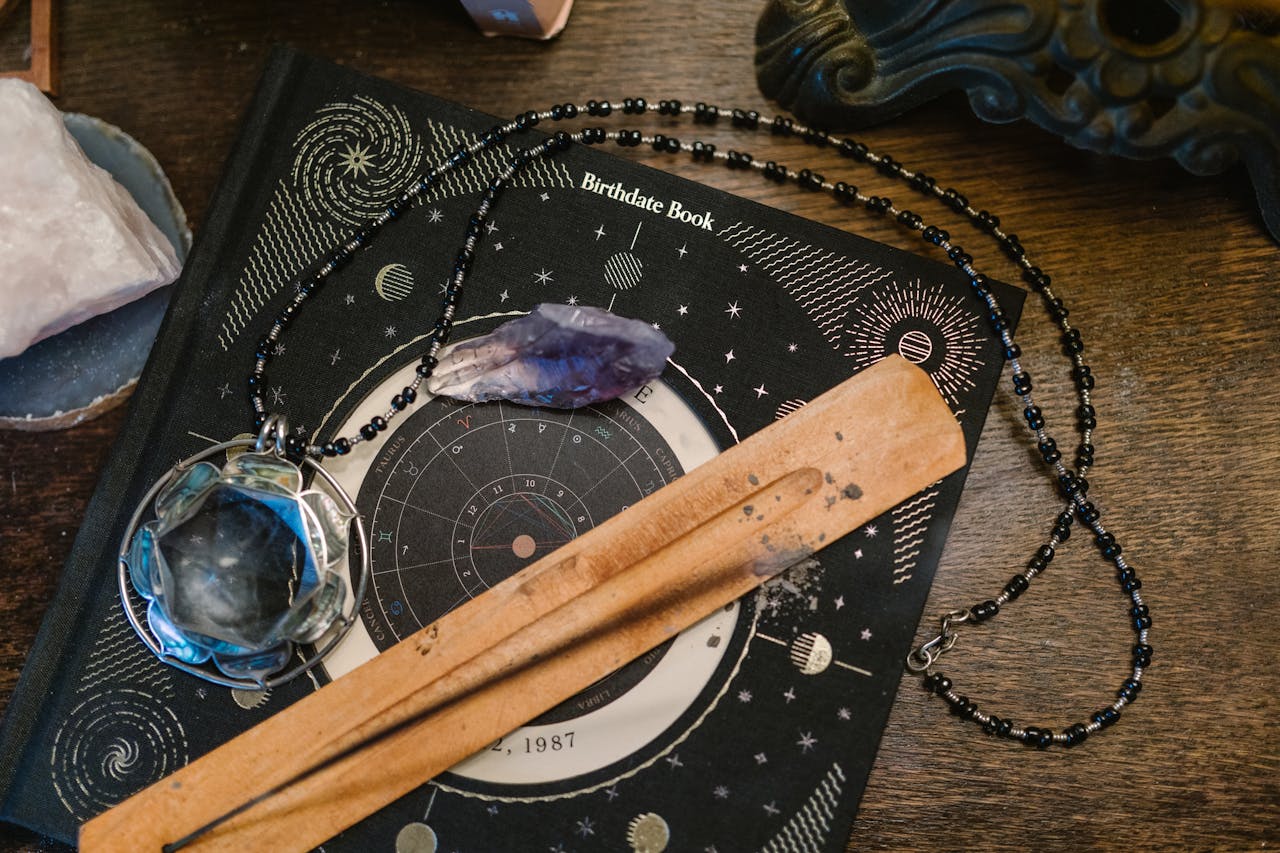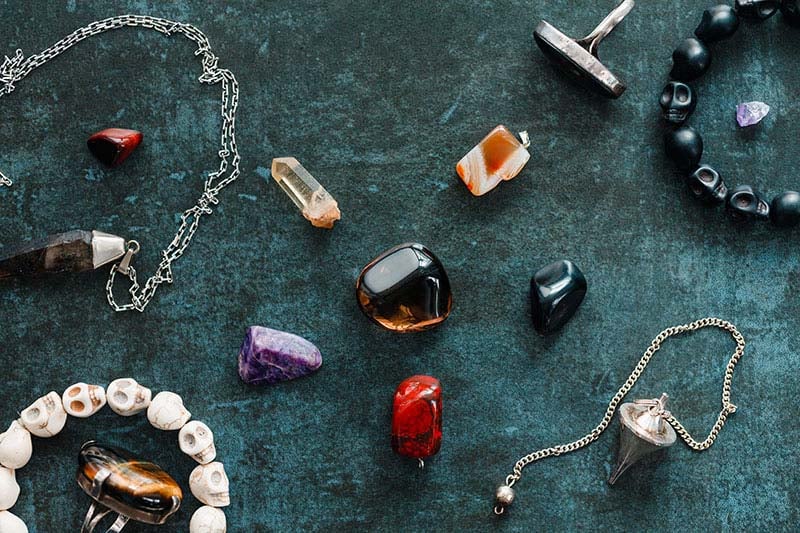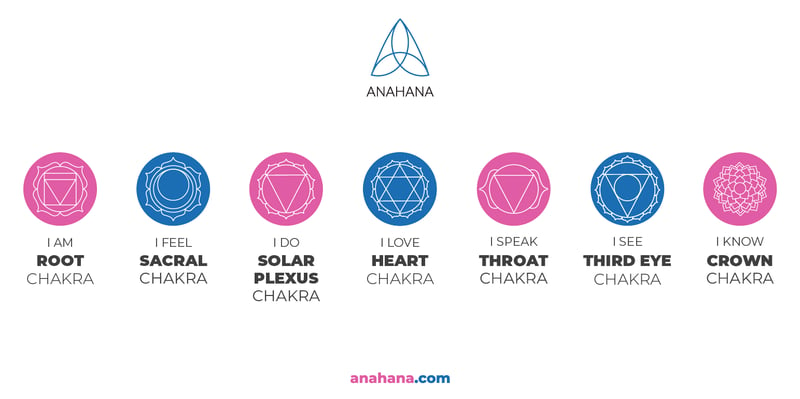
Table of Contents
Explore the significance of chakra necklaces in promoting balance and well-being. This article provides practical insights on choosing and wearing these necklaces to enhance your daily life. Discover a straightforward guide to the transformative benefits of chakra necklaces for a harmonious lifestyle.
Chakra Necklaces Explained
When these energy centers become blocked or unbalanced, they can lead to physical, emotional, and spiritual imbalances. Necklaces are designed to balance the body's energy points.
By wearing specific gemstones, you can help remove blockages and promote the free flow of energy throughout the body. This can lead to feelings of peace, calm, and focus in daily life.
Wearing a matching set of chakra jewelry can help amplify the healing properties of the gemstones and crystals, promoting a greater sense of balance and harmony in the body. Utilizing the entirety of the chakra jewelry collection can help with your quest for spiritual balance.
Chakra Necklace Benefits
Here are some of the benefits often associated with chakra necklaces:
-
Promotes Physical Healing: Chakra necklaces are thought to help in the healing of physical ailments associated with different chakras. For instance, a necklace that focuses on the throat chakra might be used to address issues related to communication or throat health.
-
Enhances Emotional Well-being: By balancing the chakras, these necklaces are believed to aid in managing emotional turmoil, reducing stress, and fostering a sense of inner peace and stability.
-
Spiritual Growth: Chakra jewelry can also serve as a tool for meditation and spiritual growth, helping individuals to focus on personal energy centers and achieve higher states of consciousness.
-
Improves Mental Clarity and Focus: Aligning the chakras is said to help clear mental blocks, improve concentration, and promote a positive mental environment that is conducive to making decisions and creative thinking.
-
Energy Protection: Some believe that chakra necklaces can protect against negative energies or vibes from external sources, thereby acting as a shield that maintains the wearer's energy balance.
It's important to note that while many people believe in and experience the benefits of chakra necklaces, these effects are not scientifically proven. The benefits often depend on the individual's belief in the healing properties of the chakras and the power of intention and mindfulness.
3 Types of Chakra Necklaces

Chakra necklaces come in various styles and designs and can match any personal style. The most common types include pendant necklaces, beaded necklaces, and wire-wrapped necklaces, which only vary in necklace length, material, and style.
-
Pendant Necklaces: These often come in various styles, such as minimalist designs, intricate wire wrapping, or ornate settings.
-
Beaded Necklaces: These necklaces are another popular style of chakra necklace. These necklaces feature beads from gemstones or crystals strung together in various patterns and colors.
-
Wire-wrapped Necklaces: These necklaces are a unique style of chakra necklace that features gemstones wrapped in wire. The wire can be twisted into various designs, and the gemstones can be arranged to represent the seven chakras.
Necklaces can be made from various materials, including sterling silver, gold, brass, and gemstones. Sterling silver is often used in chakra necklaces because it is a durable, and versatile material that pairs well with any gemstone or crystal. To best preserve your jewelry, ensure avoiding contact with cleaning agents and chemicals
Choosing the Right Chakra Necklace
To choose the right chakra necklace, it is important to identify which chakra or energy center an individual wants to focus on.
This can be done by assessing which physical or emotional areas of the body need attention or by using a chakra test or assessment to determine which chakras are out of balance.
Once you have identified which chakra to focus on, you can choose a corresponding gemstone or crystal. For example, Rose Quartz is often used to balance the Heart Chakra, while Amethyst is used to balance the Third Eye Chakra.
It is also important to consider your preferences and style when choosing a necklace. Different gemstones and crystals come in various shapes, sizes, and colors, and you should choose a necklace that resonates with your own sense of beauty and inspiration.
With these factors in mind, individuals can choose a necklace that promotes chakra balance, healing, and a greater sense of connection to the universe.
The Seven Chakras

The concept of chakras originates from ancient India, representing spiritual energy centers within the human body that influence physical, mental, and emotional well-being.
-
Root Chakra (Muladhara) is located at the base of the spine, representing the connection to the earth and a sense of stability and security.
-
Sacral Chakra (Svadhisthana) is located in the lower abdomen. It controls emotions, creativity, and sexual energy.
-
Solar Plexus Chakra (Manipura) is located in the upper abdomen, governing willpower, self-esteem, and confidence.
-
Heart Chakra (Anahata) is located in the center of the chest. The Heart Chakra is the home for love and compassion, controlling the ability to give and receive love.
-
Throat Chakra (Vishuddha) is located in the throat, governing communication and self-expression.
-
Third Eye Chakra (Ajna) is located in the brain, behind the center of the forehead, representing higher consciousness, intuition, inner wisdom, and skills to see beyond the physical world.
-
Crown Chakra (Sahasrara) is located at the top of the head. The Crown Chakra is the center of spiritual connection and divine consciousness, controlling connection to the universe and the infinite.
Additional Ways to Align The Chakras
Aside from wearing a chakra necklace, other ways exist to align and balance the body's energy centers. Here are some additional techniques:
-
Meditation: Practicing chakra meditation can help to clear the mind and bring focus to the body's energy points. Focus on each chakra, visualizing its color and energy flowing freely.
-
Yoga: Specific Yoga poses that focus on specific chakras can help to open and balance those energy centers. For example, the camel pose activates the Heart Chakra, while the plow pose stimulates the Throat Chakra.
-
Aromatherapy: Certain essential oils are believed to correspond to specific chakras. Using these oils in a diffuser or applying them topically can help to balance and open those energy centers.
-
Sound Healing: Sound therapy uses specific frequencies and vibrations to balance the body's energy centers. Chanting, singing bowls, and tuning forks are some tools used in sound healing.
-
Crystal Healing: Placing specific gemstones on or around the body's energy points can help balance and activate those chakras. Different gemstones are believed to correspond to chakras, such as Amethyst, a Crown Chakra crystal, and Citrine, a Solar Plexus Chakra crystal. These can be used by placing them on the body or with other jewelry like bracelets or rings.
Takeaway
Wearing a chakra necklace can have various benefits, promoting balance and alignment in the body's energy centers, increasing confidence and spiritual connection, and promoting a sense of calm and focus in daily life.
One can harness the healing properties of these beautiful jewelry pieces by choosing the right gemstones and styles that align with an individual's specific needs. Overall, it's important to prioritize the alignment of our energy centers for optimal health and well-being.
References
https://www.researchgate.net/publication/338895528_Psychological_Significance_of_the_Chakras
https://www.researchgate.net/publication/342562977_A_Brief_History_of_the_Chakras_in_Human_Body
https://books.google.com/books/about/Chakras.html?id=810oDwAAQBAJ
https://health.clevelandclinic.org/chakras
https://www.fitsri.com/articles/chakra-colors-meaning-science
https://www.siddhiyoga.com/yoga/practice/chakras/chakra-colors
Disclaimer
The contents of this article are provided for informational purposes only and are not intended to substitute for professional medical advice, diagnosis, or treatment. It is always recommended to consult with a qualified healthcare provider before making any health-related changes or if you have any questions or concerns about your health. Anahana is not liable for any errors, omissions, or consequences that may occur from using the information provided.

By: Meriah McCauley
Meriah McCauley is passionate about the art and science of holistic health and healing. She explored the power of yoga through working with her mentor and guru Dr. Don Stapleton in Costa Rica. She also received a Masters in Psychology from Columbia University, specializing in Spirituality and the MindBody connection. Meriah now offers coaching, yoga teacher trainings, and Holotropic Breathwork for personal development. She loves to connect with those on this path.
